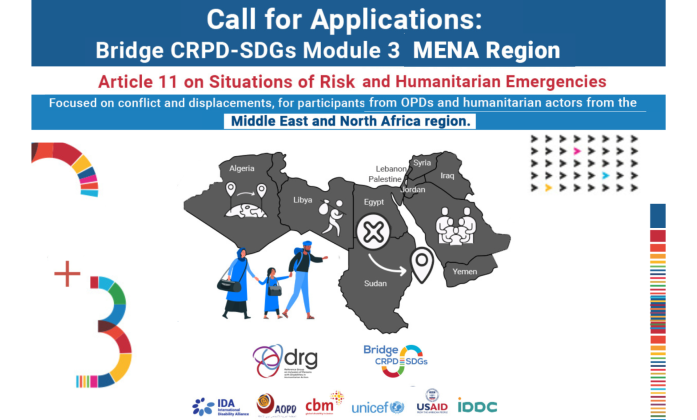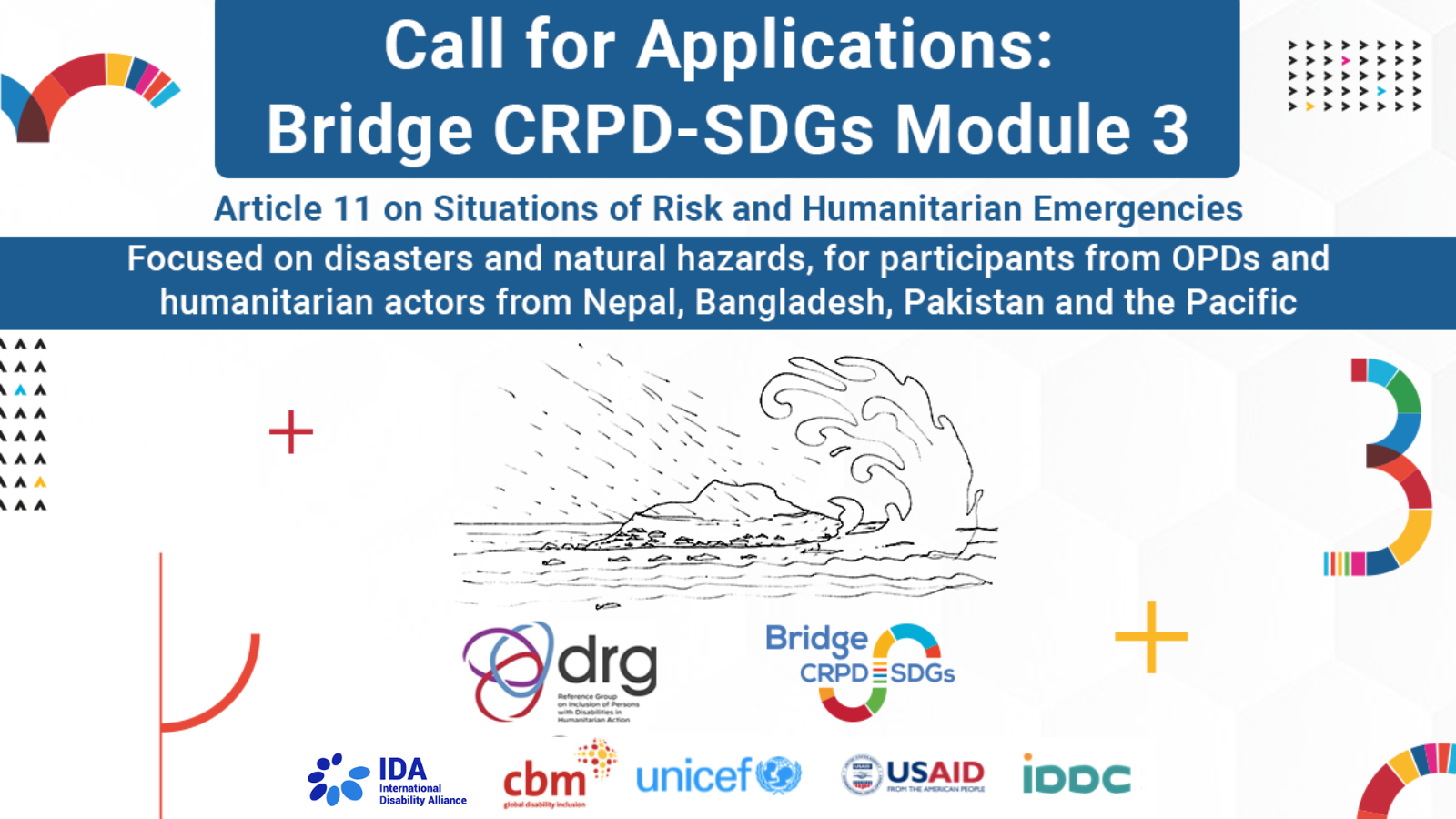>> Update from Day 1 (28 September)
>> Update from Day 5 (2 October)
>> Update from Days 6-8 (2-5 October)
>> BRIDGE Training of Trainers Module B, Brighton, 28 September to 5 October 2017
DAY 2: 29 SEPTEMBER
On day 2, the work was focused on data and indicators for the planning implementation and monitoring of the SDGs in line with the CRPD. Participants had the opportunity to share their experience on the joint IDA-IDDC informal meeting to enhance the coordination for CRPD compliant SDG monitoring, held on 26 and 27 September 2017, in London, United Kingdom.

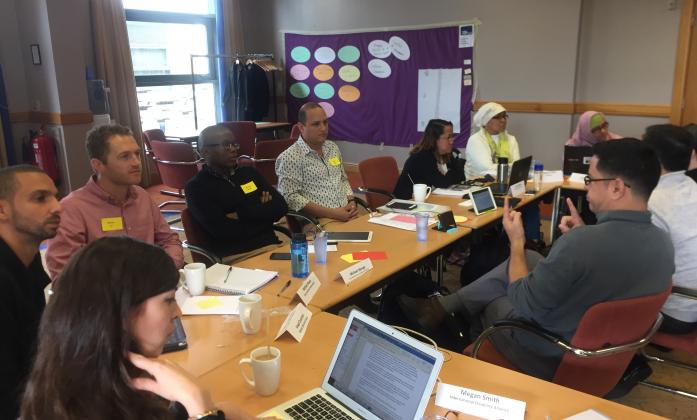
There were discussions on the use of data to develop inclusive policies, including the evidence used to shape pilot programmes. Examples were drawn on employment of persons with disabilities, illustrating the value of collecting data on marginalised groups in society. In addition, introductions were also made to the OHCHR human rights indicators providing evidences of how the development of disability-inclusive data and monitoring has advanced, and that with such mechanisms, governments can learn more about the situation of persons with disabilities at national level.
In a second session, there was focus on data, disability and poverty. The trainees were exposed to key conceptual and measurements issues related to link between disability and poverty with examples of research drawn from Viet Nam in the context of the disability poverty gap, presented by Daniel Mont. The BRIDGE CRPD-SDG ToT trainees were joined by Maria Kett (Leonard Cheshire Disability and Inclusive Development Centre, UCL LCD) presented findings on disability and poverty in Liberia, with a focus on the characteristics of multi-dimensional poverty and wellbeing.
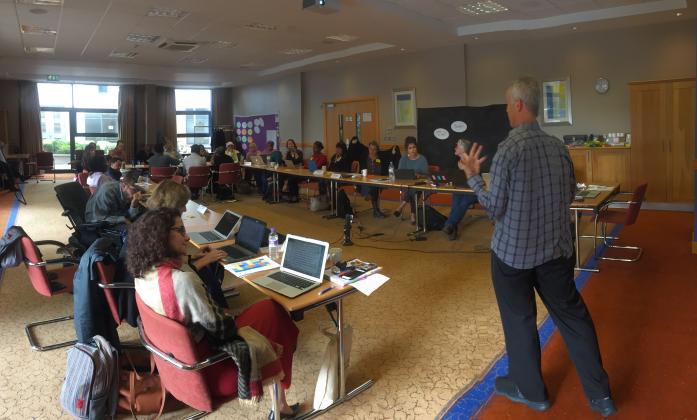
In the afternoon, Daniel Mont (CIP) facilitated a session on the different methods for measuring extra cost of disability for individuals and their families. Islay Mc Taggart (International Center for Evidence in Disability-London School of Hygiene and Tropical Medicine) presented the work done on disaggregation and analysis of data sets to identify persons with deafblindness. Those data and evidence will contribute to the Global Report on situation and rights of persons with Deafblindness led by World Federation of DeafBlind (WFDB) in partnership with Sense International and supported by IDA, due for publication in June 2018.
Over the day, participants discussed the importance for organisations of persons with disabilities (DPOs) to acquire further data literacy to be able to frame further the data debates related to inclusion of persons with disabilities .
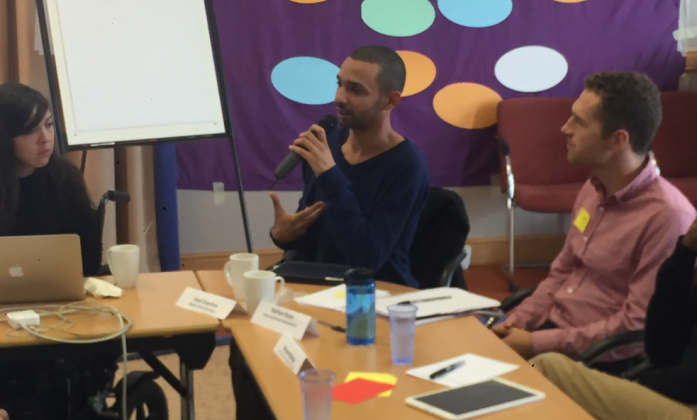
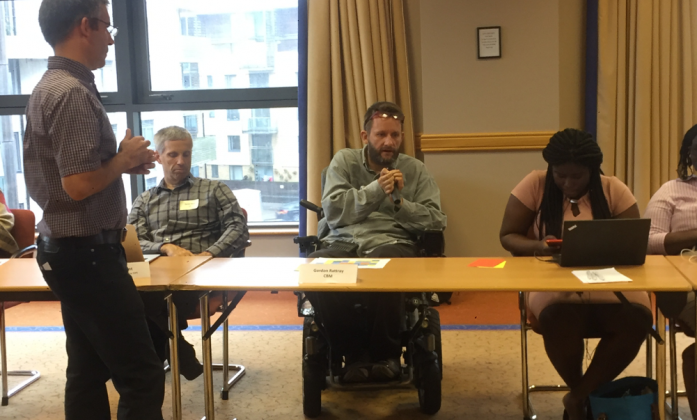
DAY 3: 30 SEPTEMBER
On day 3, trainees reviewed the data session of BRIDGE CRPD-SDG curriculum and seek ways to ensure that it better responds to the diversity of level of knowledge and experience from participants on data. During the feedback, it was recognised the importance for trainers to get exposure to experiences from different countries, regions and contexts.
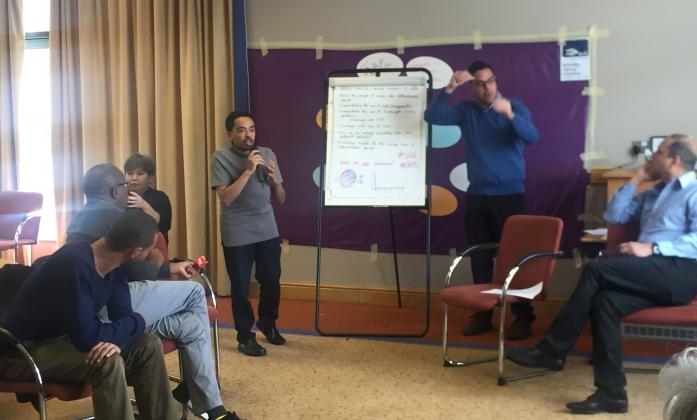
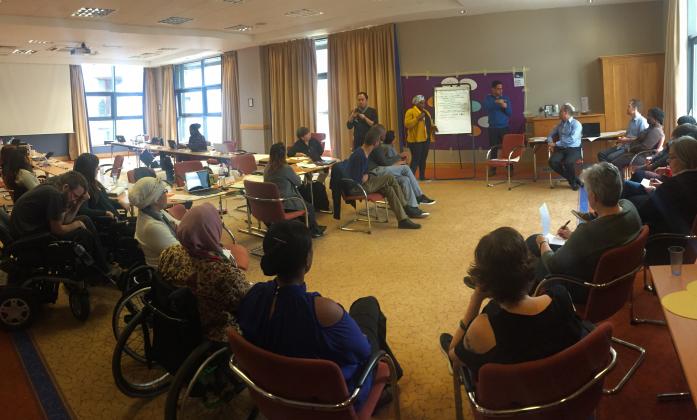
Then, participants exchanged on the economic case for inclusive development thanks to a presentation by Morgon Banks of the International Centre for Evidence in Disability (LSHTM) reviewing evidences in different sectors (education, employment, health). In a logical follow up, a session reviewed elements necessary to understand and explain public resources mobilization for CRPD implementation and inclusive development.
During the afternoon, trainees worked on the SDG 10 on reducing inequalities. Following a brief presentation, the BRIDGE CRPD – SDG ToT trainees worked in groups to refer to the CRPD and on how indicators on the SDG 10 measure adequately its targets, in line with CRPD. On day 3, Bailey Grey, Sense International, joined the group as an active observer.
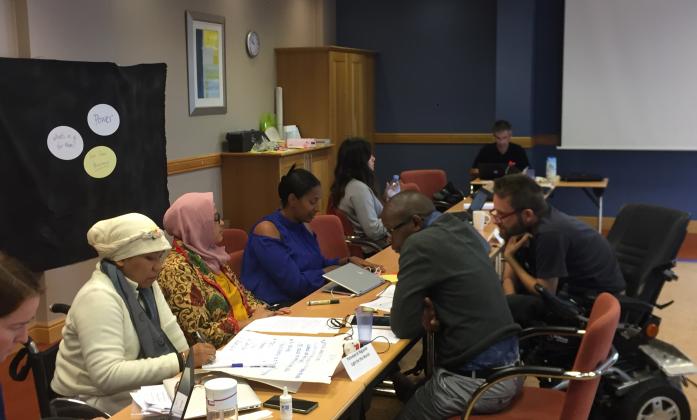
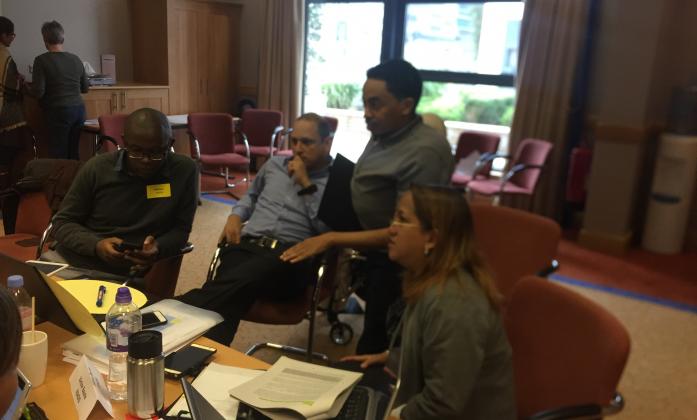
DAY 4: 1 OCTOBER
Day 4 was opened by a presentation on a case study from the Philippines on CRPD-compliant budget. Participants worked on the importance to have data, and shared natural struggles for the disability movement regarding technicalities related to data collection and analysis.
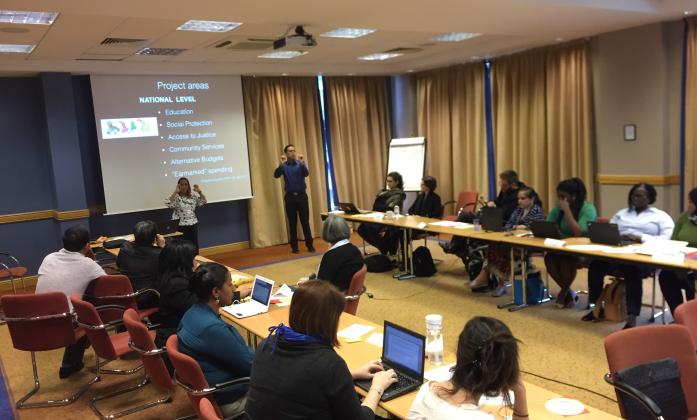
Following this session, participants from Kenya and Ghana presented national processes of legal harmonisation, including regarding mental health laws, and shared key elements to be considered by the disability movement in processes of legal harmonisation. The trainees also engaged in group work regarding SDG 3 on Ensuring healthy lives and promoting well-being for all at all ages. Participants discussed the human rights based approach to health and the importance of non-discrimination related to this SDG 3, as well as on in-depth understanding of concepts related to the Goal, such as universal health coverage versus universal health care, among others.
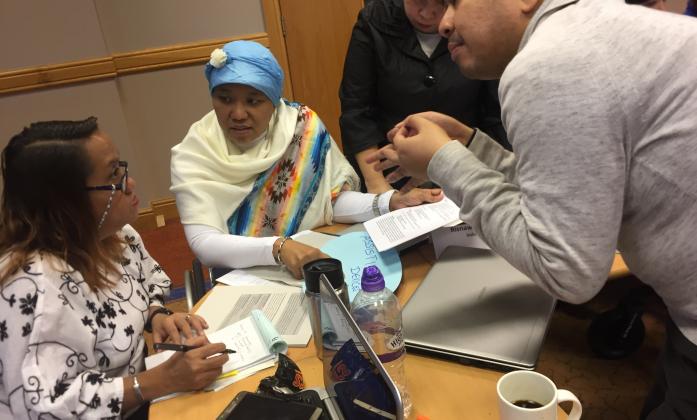
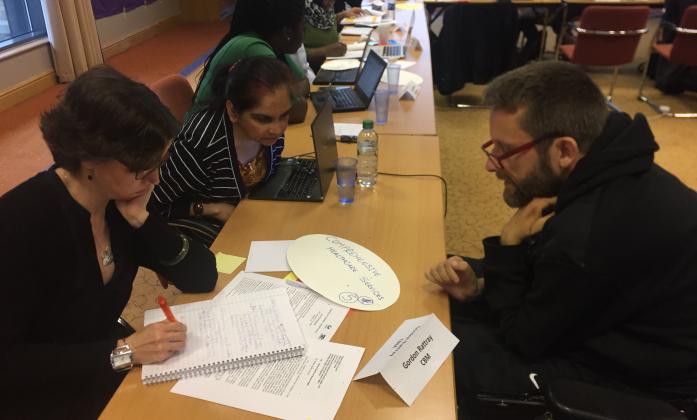
In the final session of the day, trainees worked to build on their understanding of CRPD–compliant advocacy on legal harmonisation; reviewing the respective session in the BRIDGE CRPD-SDG curriculum, proposing differentiated strategies of curriculum adaptation considering different regional and national contexts, as well as diverse civil society environments. Ola Abu Alghaib, from Leonard Cheshire, and Bailey Grey, from Sense International, observed the sessions during day 4.
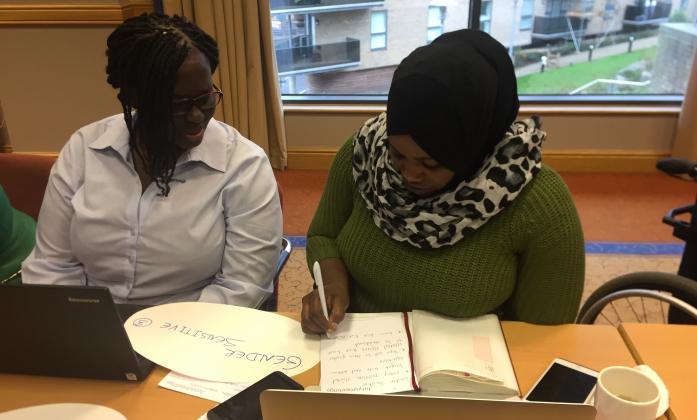
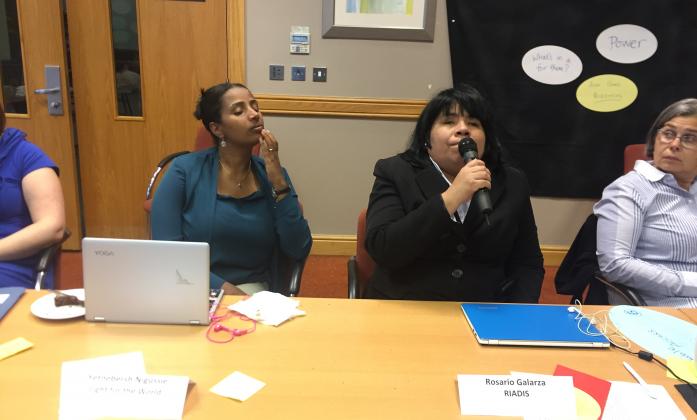
For more information and documents:
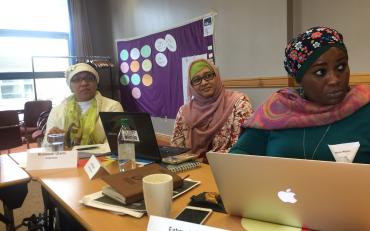
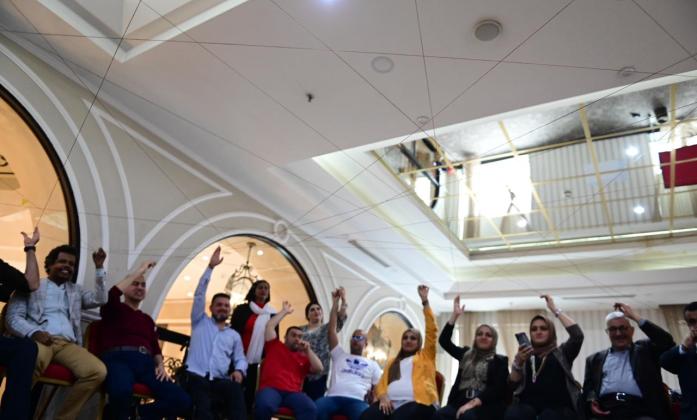 Bridge CRPD-SDGs is an intensive training programme that aims to support organisations of persons with disabilities (DPOs) and disability rights advocates to develop an
Bridge CRPD-SDGs is an intensive training programme that aims to support organisations of persons with disabilities (DPOs) and disability rights advocates to develop an